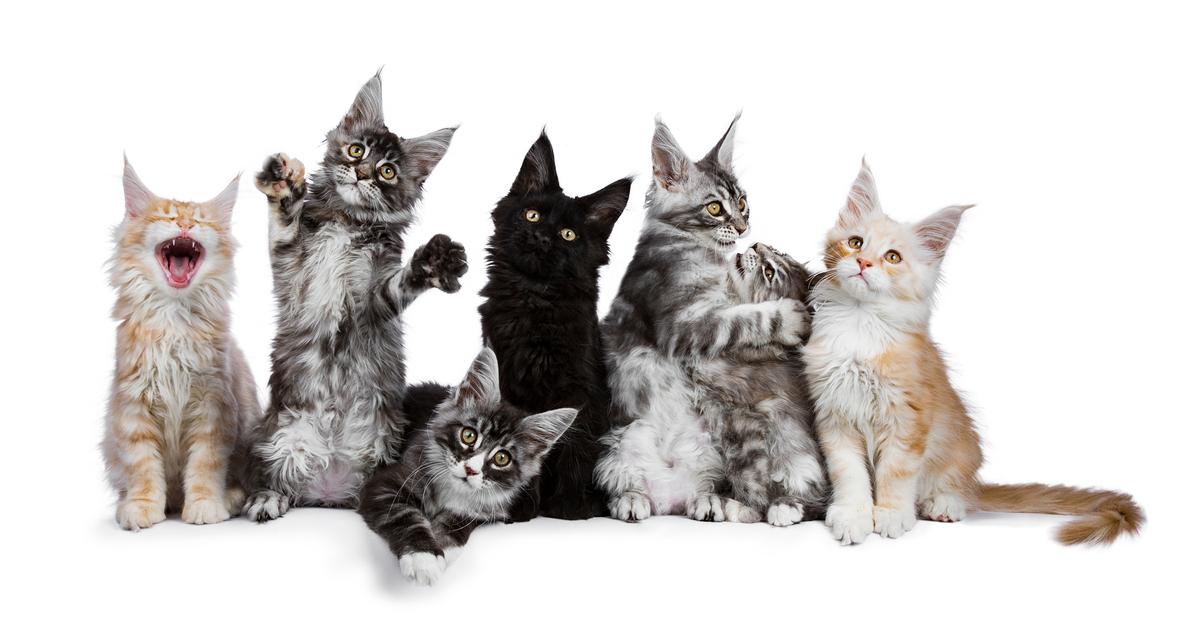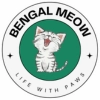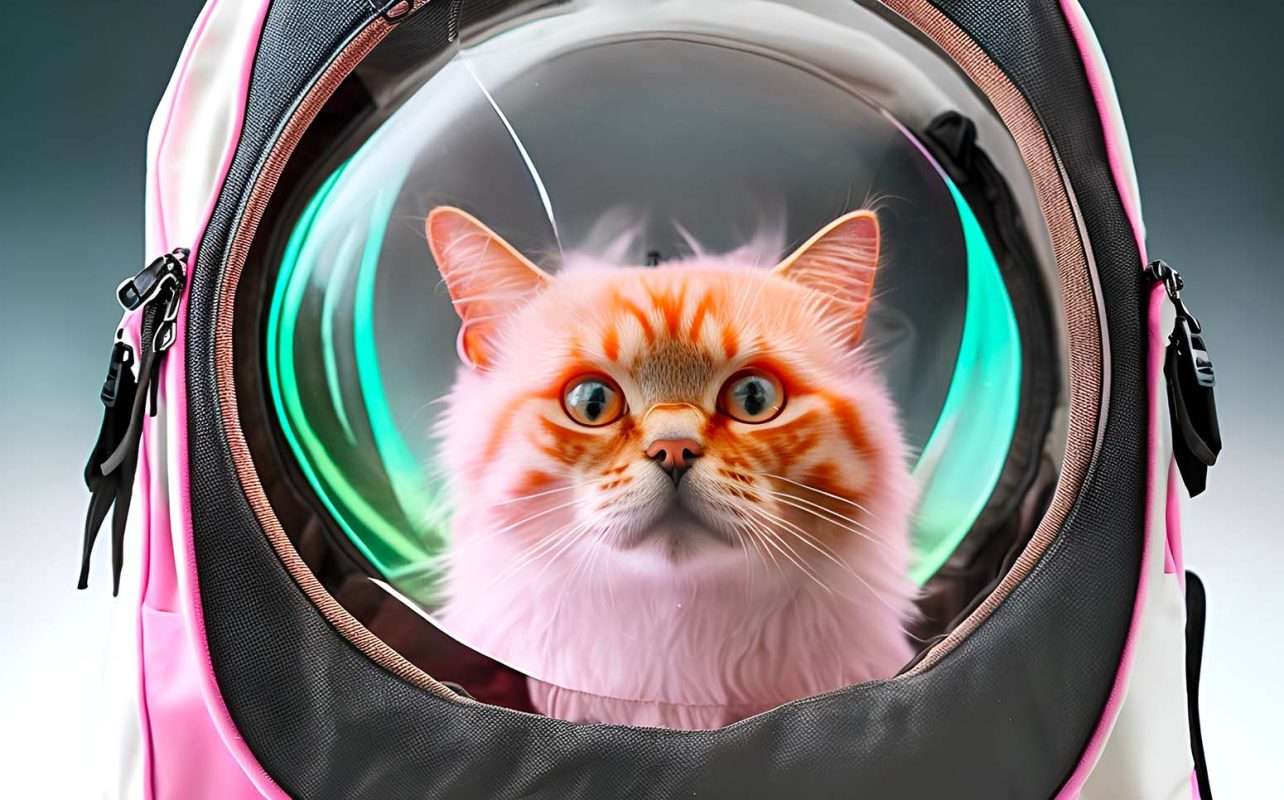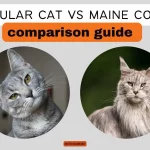Do Maine Coon Cats Have Health Problems? Unraveling the Truth
Yes, Maine Coon cats have health problems such as spinal muscular atrophy, hypertrophic cardiomyopathy, hip dysplasia, stomatitis, and polycystic kidney disease. They are also susceptible to bacterial and viral infections.
However, despite these health issues, Maine Coons are relatively easy to care for and not necessarily more demanding in terms of maintenance needs compared to other breeds. Their lifespan can vary, but with proper care, they can live a long and healthy life.
We will discuss common health problems that Maine Coon cats may encounter and provide tips on how to care for them to ensure their well-being.

Credit: www.grownxtdigital.in
Understanding The Health Issues Faced By Maine Coon Cats
Maine Coon cats are susceptible to health issues such as spinal muscular atrophy, hypertrophic cardiomyopathy, hip dysplasia, stomatitis, and polycystic kidney disease. Like all cats, they can also be prone to bacterial and viral infections, which can be prevented through vaccination.
Common Hereditary Health Problems In Maine Coons
Maine Coon cats, like any other breed, are prone to certain health issues that can be passed down genetically. It’s crucial for cat owners to be aware of these common hereditary health problems in order to provide the appropriate care and early detection. Here are some of the health issues commonly seen in Maine Coon cats:
Spinal Muscular Atrophy (sma)
One of the hereditary health problems in Maine Coon cats is spinal muscular atrophy (SMA). This condition affects the muscle control and function, leading to muscle weakness and atrophy. Maine Coon cats with SMA may show symptoms such as difficulty walking, muscle tremors, and a loss of coordination. It is essential to consult with a veterinarian if you suspect your Maine Coon cat has SMA.
Hypertrophic Cardiomyopathy (hcm)
Hypertrophic cardiomyopathy (HCM) is another common health problem in Maine Coon cats. It is a heart condition characterized by the thickening of the heart muscles, which can lead to various cardiac issues. Maine Coon cats with HCM may experience symptoms like difficulty breathing, coughing, and reduced energy levels. Regular check-ups and screenings can help in diagnosing and managing this condition.
Hip Dysplasia
Hip dysplasia is a hereditary condition commonly found in Maine Coon cats. It affects the development and stability of the hip joints, resulting in lameness, pain, and difficulty in mobility. Owners should be vigilant for signs such as limping or reluctance to jump. Early detection and appropriate treatment can significantly improve the quality of life for cats with hip dysplasia.
Stomatitis
Maine Coon cats are also prone to developing stomatitis, which is an inflammatory condition affecting the mouth and gums. It can cause extreme pain and discomfort for the cat, leading to difficult eating and grooming. Signs of stomatitis may include red, swollen gums, drooling, and bad breath. Timely dental care and regular check-ups can help manage this condition effectively.
Polycystic Kidney Disease (pkd)
Polycystic kidney disease (PKD) is a hereditary condition seen in Maine Coon cats. It causes the formation of cysts in the kidneys, which can affect their normal functioning. Symptoms may include increased thirst, frequent urination, and weight loss. Routine kidney screenings and proper management can help prolong the cat’s lifespan and improve its quality of life.
The Vulnerability Of Maine Coon Cats To Infections
Maine Coon cats are prone to various health problems, including spinal muscular atrophy, hypertrophic cardiomyopathy, hip dysplasia, stomatitis, and polycystic kidney disease. They are also susceptible to bacterial and viral infections, which can be prevented through vaccination. These issues require special attention and care to ensure the health and well-being of these beloved furry friends.
Bacterial And Viral Infections In Maine Coons
Maine Coon cats, like all feline companions, are susceptible to a range of bacterial and viral infections. These infections can affect their overall health and well-being if left untreated. It is important for Maine Coon owners to be aware of the potential risks and take necessary precautions to keep their beloved pets safe.
Panleukopenia
Panleukopenia, also known as feline distemper, is a highly contagious viral infection that primarily affects kittens and unvaccinated cats. It can cause severe symptoms such as fever, vomiting, diarrhea, and dehydration. Panleukopenia can be life-threatening, so it is crucial to ensure that Maine Coon cats receive the appropriate vaccinations to prevent this infection.
Calicivirus
Calicivirus is another common viral infection that Maine Coon cats may be vulnerable to. It is part of the feline respiratory disease complex and can cause symptoms such as sneezing, nasal discharge, and ulcers in the mouth. While calicivirus can be uncomfortable for cats, most will recover with supportive care. Vaccination plays a crucial role in preventing the spread of calicivirus among cats.
Rhinotracheitis
Rhinotracheitis, also known as feline herpesvirus, is a respiratory infection that can affect Maine Coon cats. It often presents with symptoms such as sneezing, nasal discharge, and conjunctivitis. While most cats can recover from rhinotracheitis with proper care, the infection can recur during times of stress. Vaccination against rhinotracheitis can help minimize the severity and frequency of outbreaks.
Rabies
Rabies is a viral infection that can affect both animals and humans. It is transmitted through the bite or scratch of an infected animal and can be deadly if left untreated. Maine Coon cats, like all cats, should be vaccinated against rabies to protect them from this potentially fatal disease. It is important for cat owners to adhere to local regulations regarding rabies vaccinations.
Exploring The Lifespan Of Maine Coon Cats
Maine Coon cats are well-known for their large size and gentle nature. But have you ever wondered how long these majestic felines live? In this article, we will delve into the fascinating topic of the lifespan of Maine Coon cats, and explore the factors that impact their life expectancy.
How Long Do Maine Coons Live?
When it comes to the lifespan of Maine Coon cats, they are fortunate enough to have a relatively long life expectancy compared to other cat breeds. On average, Maine Coon cats live between 12 to 15 years.
However, it is important to note that individual lifespan can vary depending on various factors, including genetics, environment, and overall health.
Factors Impacting The Life Expectancy Of Maine Coon Cats
Several factors influence the lifespan of Maine Coon cats. Here are some of the key factors to consider:
1. Genetics:
Maine Coon cats are known to have a sturdy genetic makeup which contributes to their generally long lifespan. However, it is crucial to choose a reputable breeder who focuses on breeding healthy cats with minimal genetic health issues to ensure a longer lifespan for your pet.
2. Diet and nutrition:
A well-balanced and nutritious diet plays a vital role in the overall health and lifespan of Maine Coon cats. Providing them with high-quality cat food specifically formulated for their nutritional needs can help prevent various health problems and promote longevity.
3. Regular veterinary care:
Routine check-ups and vaccinations are essential for keeping Maine Coon cats healthy and detecting any potential health issues early on. Regular veterinary care can help prevent and treat conditions that may impact their lifespan.
4. Exercise and mental stimulation:
Maintaining an active lifestyle and providing mental stimulation is crucial for the overall well-being of Maine Coon cats. Regular playtime and environmental enrichment can promote physical and mental health, ultimately contributing to a longer lifespan.
5. Environmental factors:
The environment in which a Maine Coon cat lives can significantly impact their lifespan. Providing a safe and stress-free environment, free from toxins and hazards, can help prevent accidents and illnesses, promoting a longer and healthier life.
By taking these factors into consideration and providing your Maine Coon cat with proper care, you can maximize their lifespan and ensure they enjoy a happy and fulfilling life by your side.
Debunking The Myth: Are Maine Coons High-maintenance?
Maine Coon cats are prone to certain health problems such as spinal muscular atrophy, hypertrophic cardiomyopathy, hip dysplasia, stomatitis, and polycystic kidney disease. However, they are not necessarily high-maintenance and can be relatively easy to care for despite their size.
Maintenance Needs Of Maine Coon Cats
When it comes to caring for a Maine Coon cat, you may have heard some myths about their high-maintenance needs. However, it’s time to debunk those myths and discover the truth about Maine Coon care requirements. While Maine Coons are certainly impressive in size, their maintenance needs are not as demanding as you might think.
Comparing The Care Requirements Of Maine Coons With Other Cat Breeds
Contrary to popular belief, Maine Coons are relatively easy to care for compared to many other cat breeds. They may be one of the largest domestic cat breeds, but it doesn’t take much effort to keep them happy and healthy. Here, we will compare the care requirements of Maine Coons with other breeds to give you a better understanding of their needs.
Feeding
When it comes to feeding, Maine Coons do not have any specific dietary needs that make them high-maintenance. They can be fed a regular high-quality cat food that meets their nutritional requirements. However, due to their larger size, Maine Coons may require slightly more food than smaller breeds. It’s essential to monitor their weight and adjust the amount of food accordingly to prevent obesity.
Grooming
Maine Coons have a thick and luscious coat that requires regular grooming to prevent matting and keep it in good condition. However, this does not mean they are high-maintenance in terms of grooming. A basic grooming routine that includes brushing a few times a week, checking and cleaning their ears, and trimming their nails should suffice. Additionally, regular dental care, such as teeth brushing, is recommended to maintain their oral health.
Exercise And Play
Maine Coons are an active and playful breed, but their exercise needs are not excessive. They enjoy interactive play sessions and access to toys, but they can also entertain themselves. Having a scratching post, climbing tree, or various toys will keep them mentally stimulated and physically active. However, they do not require rigorous exercise routines or constant attention to be happy.
Healthcare
Like any other cat breed, Maine Coons are prone to certain health issues, but this does not make them high-maintenance. Common hereditary health problems in Maine Coons include hypertrophic cardiomyopathy (HCM), hip dysplasia, and spinal muscular atrophy (SMA). However, regular veterinary check-ups, vaccinations, and preventive care can help manage these conditions and keep your Maine Coon healthy.
In conclusion, while Maine Coons may be large in size, they are not high-maintenance when it comes to their care needs. With a balanced diet, regular grooming, opportunities for exercise and play, and proper healthcare, you can provide a happy and healthy life for your Maine Coon without much extra effort.
Prominent Health Concerns In Maine Coon Cats
Like all breeds, Maine Coon cats have their share of health concerns. Being aware of these health problems will help you to better understand and care for your beloved Maine Coon. In this section, we will explore three of the most prominent health concerns in Maine Coon cats: Hypertrophic cardiomyopathy (HCM), Hip dysplasia, and Spinal muscular atrophy (SMA). It is important to note that not all Maine Coons will experience these health issues, but being informed will empower you to provide the best possible care for your furry friend.
Hypertrophic Cardiomyopathy (hcm)
Hypertrophic cardiomyopathy (HCM) is a common heart disease in cats, and Maine Coons have been found to be predisposed to this condition. HCM causes the walls of the heart to thicken, making it difficult for the heart to pump blood effectively. This can lead to symptoms such as difficulty breathing, lethargy, and an increased heart rate. Regular veterinary check-ups and diagnostic tests can help detect and monitor HCM in Maine Coons. Early detection and appropriate management can significantly improve the quality and length of a cat’s life.
Hip Dysplasia
Hip dysplasia is a condition that affects the hip joint and can cause pain and discomfort in cats. While commonly associated with dogs, Maine Coon cats can also develop hip dysplasia. This condition occurs when the hip joint doesn’t develop properly, resulting in an abnormal fit between the femur and the hip socket. Symptoms of hip dysplasia may include difficulty jumping, reduced mobility, and lameness. If you suspect your Maine Coon has hip dysplasia, it is important to consult with a veterinarian who can provide appropriate treatment options to alleviate your cat’s discomfort.
Spinal Muscular Atrophy (sma)
Spinal muscular atrophy (SMA) is a genetic disorder that affects the muscles and nerves in the spinal cord. Maine Coon cats are one breed that can be prone to SMA. This condition can lead to muscle weakness, tremors, and difficulty walking. SMA is typically diagnosed in kittens, and unfortunately, there is no cure for this condition. However, with proper care and support, affected cats can still live happy and fulfilling lives. Regular veterinary check-ups and early intervention can help manage the symptoms of SMA in Maine Coon cats.
Frequently Asked Questions For Do Maine Coon Cats Have Health Problems
What Illnesses Are Maine Coon Cats Prone To?
Maine Coon cats are prone to certain hereditary health issues, including spinal muscular atrophy (SMA), hypertrophic cardiomyopathy (HCM), hip dysplasia, stomatitis, and polycystic kidney disease (PKD). They can also be susceptible to bacterial and viral infections, which can be prevented through vaccination.
Do Maine Coon Cats Get Sick Easily?
Maine Coon cats can get sick easily like all cats. They are prone to bacterial and viral infections such as panleukopenia, calicivirus, rhinotracheitis, and rabies. They may also have common hereditary health problems like spinal muscular atrophy (SMA), hypertrophic cardiomyopathy (HCM), hip dysplasia, stomatitis, and polycystic kidney disease (PKD).
What Is The Life Expectancy Of A Maine Coon Cat?
Maine Coon cats have a life expectancy of around 12 to 15 years. They are prone to certain health issues like hypertrophic cardiomyopathy, hip dysplasia, and spinal muscular atrophy. Regular veterinary check-ups and proper care can help extend their lifespan.
Conclusion
Maine Coon cats, like all other breeds, are not immune to health problems. Some common hereditary health issues that Maine Coons may face include spinal muscular atrophy (SMA), hypertrophic cardiomyopathy (HCM), hip dysplasia, stomatitis, and polycystic kidney disease (PKD). Additionally, they are susceptible to bacterial and viral infections such as panleukopenia, calicivirus, rhinotracheitis, and rabies, which can be prevented through vaccination.
While Maine Coons may have certain health vulnerabilities, they are relatively easy to care for and can lead happy lives with proper attention and care.





